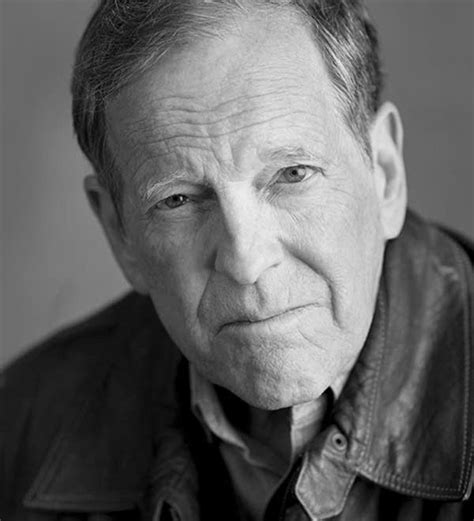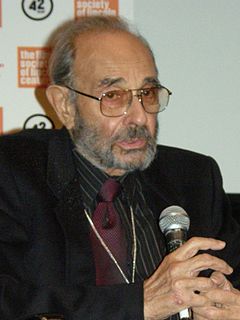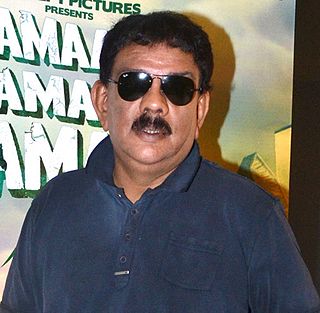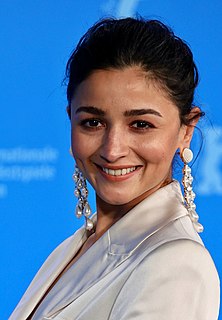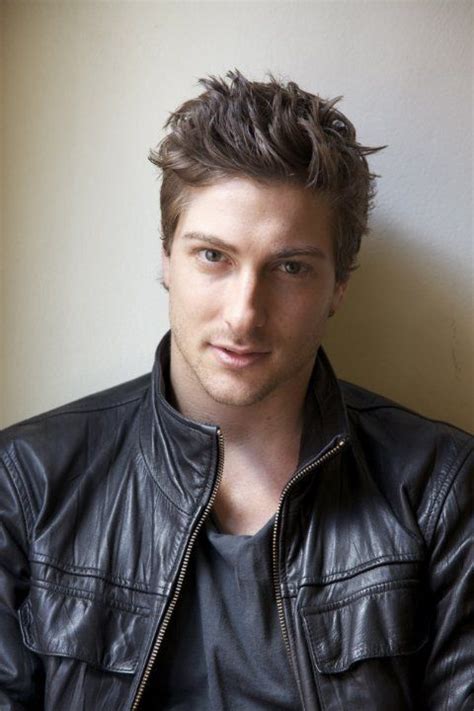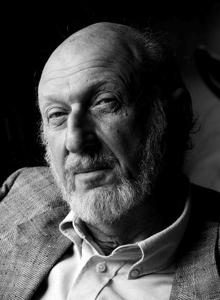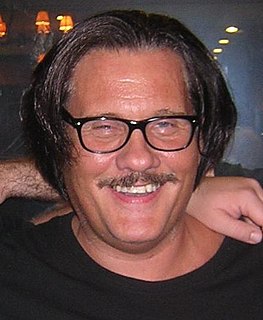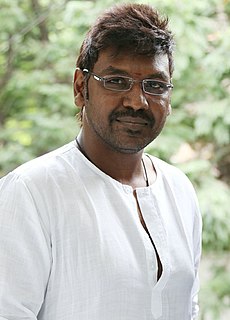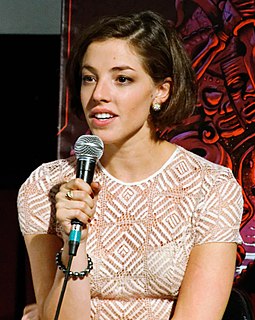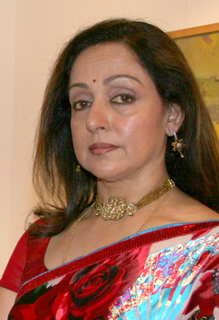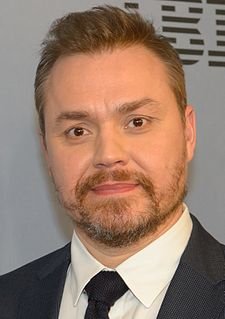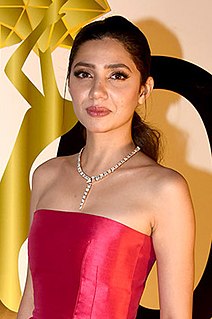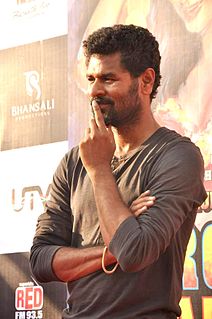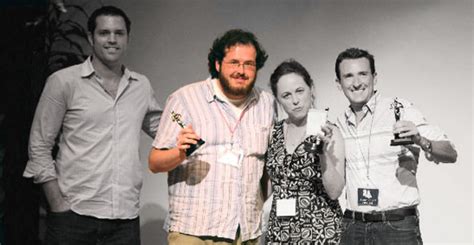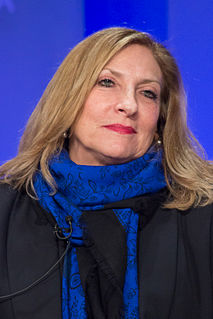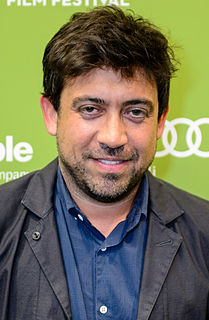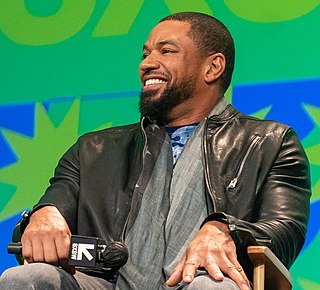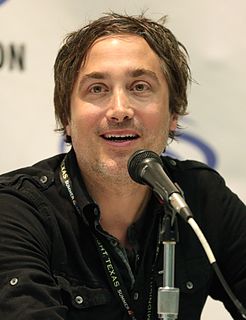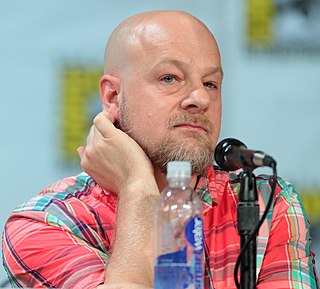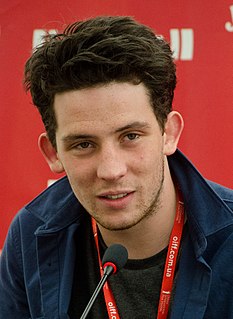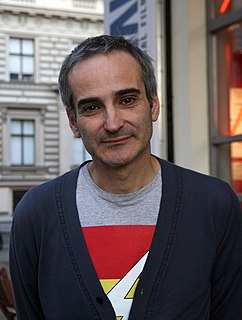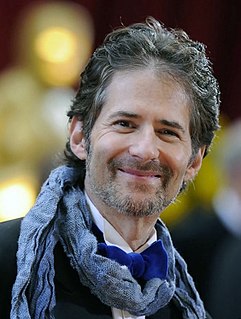Top 1200 Budget Film Quotes & Sayings - Page 10
Explore popular Budget Film quotes.
Last updated on December 19, 2024.
I would make a huge distinction between theater improvisation and film improvisation. There isn't much improvisation in film - there's virtually none. The people that theoretically could be good at this in a theater situation don't necessarily do this in a film in a way that will work, because it's much broader on a stage. But in a movie, it has to be real, and the characters have to look entirely real because it's being done as a faux documentary, so there are even fewer actors that can do that on film.
We thank those Senators, both Republican and Democrat, who stood firm against tremendous pressure from the Bush administration, pro-drilling members of Congress and their allies in the oil industry. They recognize that the budget is an inappropriate place to decide controversial national policy matters like America's energy policy. We urge all members of Congress to remain steadfast in their belief that the vast, unspoiled wilderness of America?s Arctic National Wildlife Refuge is more than a line item in the Federal Budget.
I went to Oberlin College, and they don't have a film major, but they do have what's called an individual major, where you can sort of pitch to a committee your own course study, and if they approve it, you have essentially just designed your own major. So Oberlin doesn't have a film major; they do have a film minor... And then my spring semester of my junior year, I went off to NYU film school as a visiting student - they have a program for kids from other schools to come in for a semester.
Though I am born into a film family, I hardly had much exposure to shooting during my growing
years. My first film actually taught me about the breakdown of shots in a film. My aim is to do three
memorable roles in the next five years; films I can be really proud of. And I want to work with the best.
I came back to Haiti after the earthquake not to shoot a film, but to help and be a part of the rebuilding process, like all my fellow compatriots. I didn't come to shoot a film, but I became frustrated when I realized that my help was kind of useless. We all felt lost and helpless. And it's out of that frustration that I decided to shoot a film.
To find money to make a film, you have to write maybe 50 pages to explain what you'd like to do, what the film will be, but everybody lies. Because he doesn't know what the film will be. Everybody writes 50 pages and sends it to a TV channel, a producer, to get money, but everybody lies. Or else your film is not interesting.
To get started, track your expenses for a couple of months. Then you should be able to start filling in your estimated debits and deposits for the next few months. Once you get it rolling for a while, you will be able to see your budget for the upcoming months reflected in the estimated totals. You can even notice year-to-year trends, like bonuses, tax bills, etc. that come up routinely and it will help you budget accordingly.
Various studios are still shooting on film with digital grain and the DI negatives, it's not ideal. We should really be all film or all digital. But that being said, the old way of graining in the camera, now you can make changes like a painter. It's dangerous because you can ruin the film, you can over-fiddle. We've all seen films and gone 'what the hell is that?'
I started my career with her. I was supposed to do my first film in Tamil in which she was the other heroine. The film was titled 'Vennira Aadai.' It was a love triangle, with Jayalalithaaji and I playing the hero's two love interests. But the director Sridhar removed me from the film after a few days' shooting.
Some people do stage and film. Some people are film actors, and some people are stage actors. I'm quite sure that any of the actors who did the original production of 'August' could have done the film of 'August.' I don't think any of them were particularly surprised when they didn't wind up doing the film.
If you take 'Agni Natchathiram,' it is about two half-brothers and their emotions and those are genuine, which can be made into a very hard-hitting film just that it can be presented in an entertaining fashion. Similarly with 'OK Kanmani,' it is a genuine film; it is not a flippant film just for commercial purposes.
I went back to Dallas for a little while to finish my short film 'Rusty Forkblade.' It was not the instant success I thought it was going to be. There's a false narrative that if you make a short film right after senior year, you'll be plucked out to make a feature length film, and the rest is history. I didn't do that.
I met Michael Snow and Stan Brakhage the second day after I arrived, you know. I had never seen or heard of Brakhage. For me, it was a revolution, because I was well educated in film, but American-style experimental film was known to me in the abstract, and I had seen practically nothing. I had seen a film then that Noël Burch had found and was distributing called Echoes of Silence. It was a beautiful film, three hours long. It goes forever and it was in black and white, very grainy, and I saw that film and I thought...it was not New Wave. It was really a new concept of cinema.
When the film [Certified Copy] was in the Cannes Festival, I realized that the fact of having it shot in a different culture, in a different language, in a different setting, that wasn't mine and that I didn't belong to, gave me a totally different relationship to the film. When I was sitting in the audience during the official screening in Cannes, I didn't feel that it was my film.
The core plot of 'Mercury' is so gripping that when I thought of making it as a silent film, it only made it more interesting. Once I finished writing the first draft, making a silent film that's both thrilling and engaging seemed possible. When the film team read the final script, they felt the same.
At the end of the process we called a market research company to find out whom the film was for or what was the target audience. We didn't have a lot of money to release the film, so in order for it to play in cinemas, which are dominated by films with much larger marketing budgets, we had to discover whom the film was for.
I've actually done more [music for] films than television. I love the process of writing for a film. I love that you are creating this suite of music for a film, that's all tied together sonically and thematically and hopefully people associate with the film. They all are meaningful to me in different ways.
I hate to write and spend months just waiting for the film to get financed. Then when you start preparing the film and you shoot it, you've already forgotten why you wanted to make the film in the first place. I like to have some kind of coherent energy that takes you through writing, preparing, shooting.
Film is the packaging of information in cans. Videotape is involved with the feeding back of process. Film rips information away from the situation for use elsewhere. Videotape can be fed back into a given situation and enrich experience. Film extends man as a spectator. Videotape extends man as a cybernator. Film imports information. Videotape implodes indigenous data.
When I do a film score, I am basically nothing more than a fancy pencil for hire. I don't own any of the music when I am - it belongs to the film company - and likewise, when I am done, even if I come up with something astounding that I may want to revisit... in the world of film composition, you can't do that.
I get to work with incredibly talented young filmmakers and students, and their attitudes and relationship with film is still so pure. That re-inspires me and reminds me why I got into it and what I love about film, and allows me a little reprieve from the business side of it. And it rekindles my love of film.


